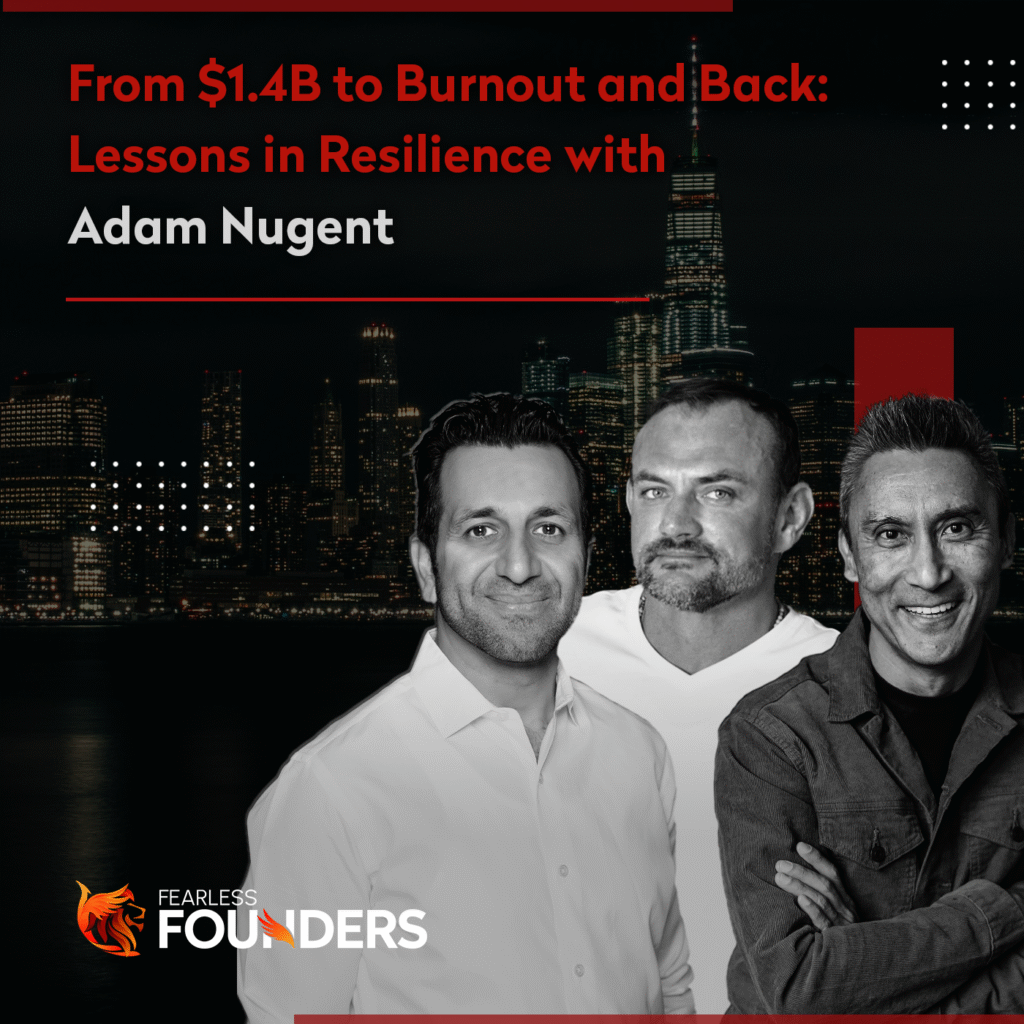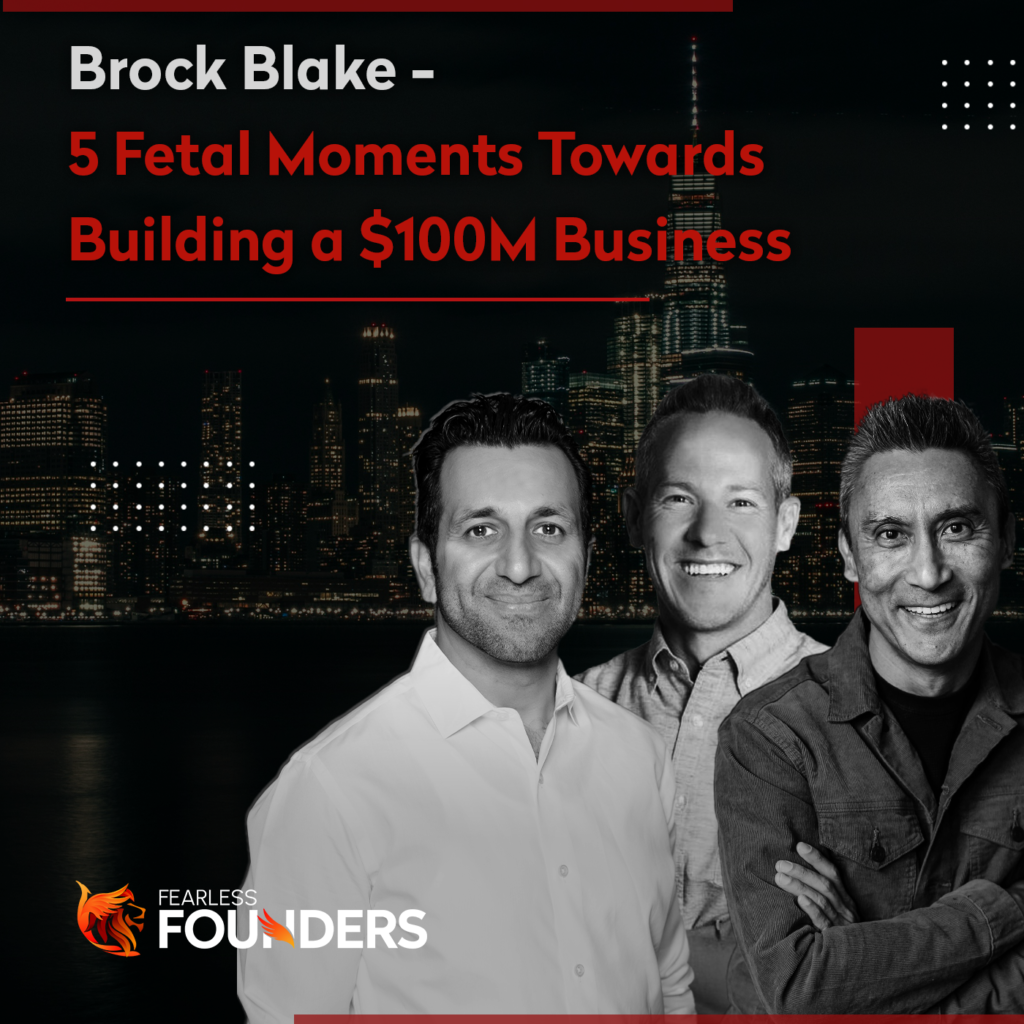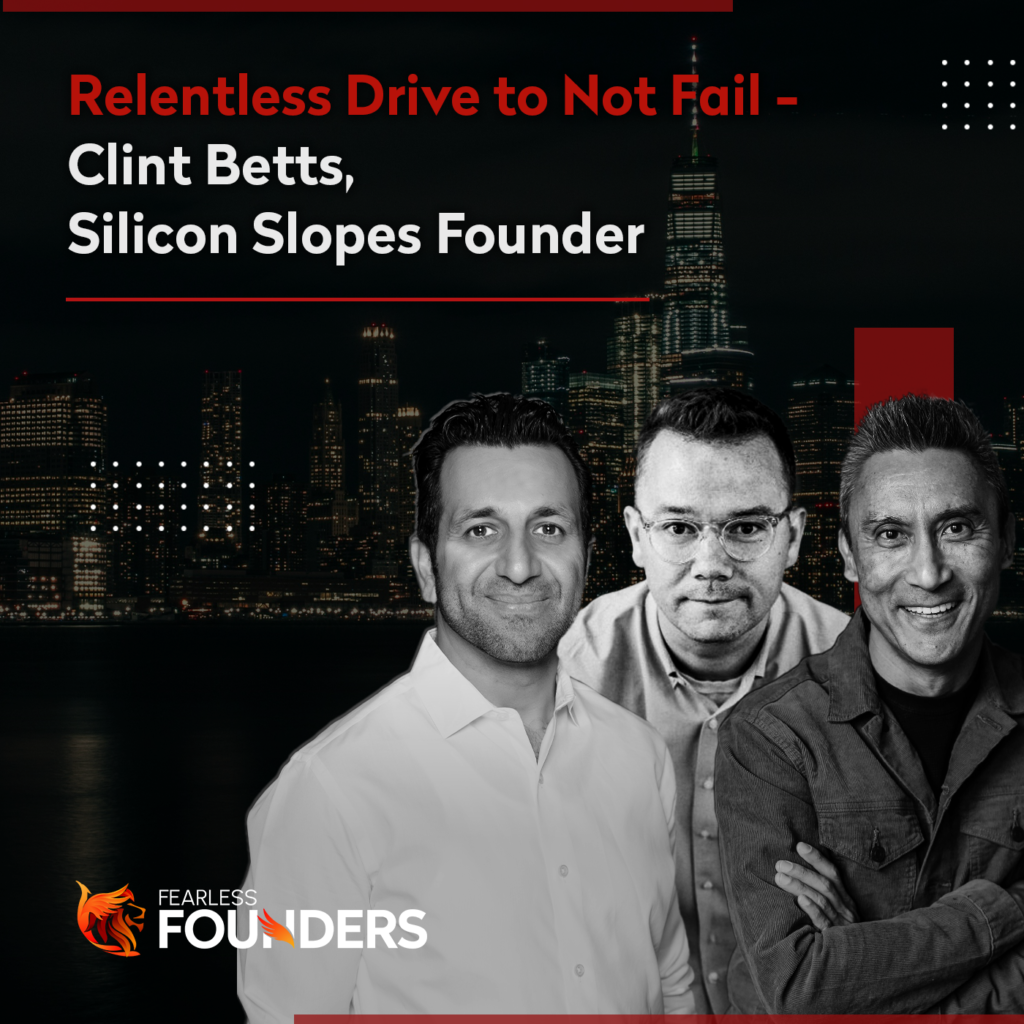Navigating the Startup World: A Conversation with Shaun Sorensen
In the fast-paced world of startups, navigating the journey from inception to success requires a blend of vision, resilience, and strategic leadership. Few individuals understand this reality better than serial entrepreneur Shaun Sorensen. With a track record of building and scaling successful ventures, Sorensen’s insights offer a roadmap for aspiring entrepreneurs looking to make their mark in the competitive startup landscape.
In this second podcast episode of Fearless Founders, Ike and Benoy invited Shaun Sorensen as a guest speaker to share his invaluable experiences and perspectives. Through a candid discussion, Sorensen delved into the intricacies and challenges of entrepreneurship, offering a wealth of wisdom garnered from personal triumphs and setbacks.
In this article, we delve into Sorensen’s wealth of experience and wisdom, exploring key lessons learned, strategies for success, and the importance of adaptability and gratitude in entrepreneurship.
The Foundations of Startup Success
Startup Growth and Leadership Transitions
At the heart of Sorensen’s approach to entrepreneurship lies a deep understanding of the importance of strategic leadership transitions in driving startup growth. As startups evolve and scale, founders often find themselves facing the challenge of replacing key leaders who have reached their capacity within the organization. Sorensen emphasizes the need for kindness, transparency, and effective communication in managing these transitions. By aligning leadership roles with the evolving needs of the business, founders can ensure continuity, maintain momentum, and foster a culture of growth and innovation.
Hiring the Right Team
Central to Sorensen’s philosophy is the belief that success in the startup world hinges on hiring the right team. Rather than fixating on pedigrees or past experiences, Sorensen advocates for a focus on character, attitude, and alignment with the company’s values and mission. He cautions against the common pitfall of over indexing on senior hires from large corporations, urging founders to prioritize individuals who embody an entrepreneurial spirit, a willingness to learn, and a drive to succeed. By assembling a team of passionate, dedicated individuals who complement each other’s strengths and weaknesses, founders can lay the foundation for sustainable growth and long-term success.
Maintaining Balance and PerspectiveOne of the recurring themes emphasized by the speakers is the delicate balance between passion for one’s business and the necessity of maintaining a professional distance for analytical judgment. While passion is undoubtedly fuel for the entrepreneurial fire, it can sometimes cloud judgment, hindering the ability to make rational decisions. Entrepreneurs are urged to cultivate a sense of perspective, allowing them to step back and evaluate situations objectively, even in the face of adversity.
Learning to Compartmentalize Emotions
In the tumultuous world of startups, setbacks and challenges are inevitable. To weather the storms effectively, entrepreneurs must develop emotional resilience and learn to compartmentalize their emotions. By separating personal feelings from professional decision-making, founders can navigate the rollercoaster of startup life without letting emotions interfere with analytical judgment. This skill proves invaluable in maintaining focus and resilience during both the highs and lows of the entrepreneurial journey.
Recruiting and Sales Mastery
Recruiting top talent and mastering the art of salesmanship emerge as pivotal factors in startup success. The speakers underscore the importance of assembling a team of skilled individuals who share a common vision for the company. Additionally, founders must hone their sales skills to effectively communicate the value proposition of their product or service. A strong sales acumen not only drives revenue but also fosters investor confidence and fuels business growth.
Vesting Founder Shares
Implementing a vesting schedule for founder shares is advocated as a strategic move to align incentives and prevent potential conflicts among co-founders. By gradually vesting equity over time, founders ensure that each team member remains committed to the company’s long-term success. This structure also guards against the risk of one founder wielding disproportionate influence, fostering a more equitable and harmonious working relationship.
Focus and Prioritization
The adage “keep the main thing, the main thing” rings true in startup management. Founders are advised to maintain a laser focus on their core vertical or segment, avoiding the temptation to diversify prematurely. By channeling resources and energy into their primary objectives, entrepreneurs can maximize efficiency and mitigate the risk of spreading themselves too thin. This disciplined approach enhances the likelihood of achieving meaningful progress and sustainable growth.
Navigating the Complexities of Startup Life
Managing Leadership Transitions
As startups evolve and scale, it’s inevitable that senior leaders may reach their professional cap within the organization. Shaun advocates for approaching leadership transitions with kindness, transparency, and equity. By providing support and guidance to departing leaders and assisting them in finding their next role, founders can navigate these transitions smoothly while preserving relationships and fostering a culture of mutual respect.
Lessons Learned from Multiple Exits
Drawing from his experience of multiple exits, Shaun highlights the importance of adaptability and agility in the fast-paced world of startups. Founders must be willing to embrace change and pivot quickly in response to market dynamics and evolving business needs. Leveraging insights gained from previous ventures accelerates growth in subsequent endeavors, enabling founders to build upon past successes and avoid repeating past mistakes.
The Role of VC Funding
While venture capital (VC) funding can fuel rapid growth and expansion, Ike shares his perspective on the nuanced role of outside investment in startup financing. While VC funding may be suitable for some businesses, it’s not always necessary or the right fit for every venture. Founders must carefully assess whether VC funding aligns with their long-term goals, business model, and growth trajectory, weighing the benefits against potential drawbacks such as loss of autonomy and heightened investor expectations.
Leadership and Soft Skills
Benoy underscores the importance of cultivating leadership skills, particularly in working with people and fostering a positive work culture. Gratitude, kindness, and effective communication are essential attributes for building trust and empowering team members to unleash their full potential. By prioritizing soft skills alongside technical expertise, founders can nurture a supportive and collaborative environment where innovation thrives, driving the company towards sustainable growth and success.
Overall, the conversation underscores the importance of maintaining a balance between passion and objectivity, mastering essential skills like recruiting and sales, implementing effective equity structures, and maintaining focus on key priorities. These insights can serve as valuable guidance for aspiring and early-stage entrepreneurs navigating the challenges of building a startup.
For more in-depth discussions and expert insights on entrepreneurship, be sure to listen to the full podcast episode on YouTube and Spotify. To stay updated on future episodes and access additional resources, visit the Fearless Founders website at https://fearlessfounders.club/.
Whether you’re a seasoned entrepreneur or just starting your journey, Fearless Founders is your go-to source for inspiration and practical advice to help you succeed in the dynamic world of startups.

Adam opens up about the collapse of his business, the emotional aftermath, and his journey through rock bottom toward personal and professional reinvention. From the pitfalls of chasing external validation to the power of rebuilding your identity, this conversation is packed with hard-won wisdom for every entrepreneur navigating risk, growth, and purpose.

In Episode 29 of Fearless Founders, hosts Benoy Tamang and Ike Kavas welcomed Abby Martin, HR expert and President of Amplēo HR, for a deep dive into what truly drives scalable, people-first growth in startups.

In this episode 28 of Fearless Founders, Brock Blake, co-founder and CEO of Lendio, shares the unfiltered reality behind building a $100M business. He walks us through five pivotal “fetal position” moments—those gut-wrenching lows that tested his resolve, leadership, and belief in the mission.

In Episode 27 of Fearless Founders, we sit down with Fengmin Gong, a pioneering technologist and four-time exited founder, known for his instrumental roles in building companies like Palo Alto Networks and CipherOptics.

In this episode of Fearless Founders, Jeremy Glauser, a three-time exit entrepreneur, shares his journey of building and scaling multiple businesses. He opens up about the challenges of entrepreneurship, from navigating market timing to the emotional toll of setbacks.

In Episode 25 of Fearless Founders, we sit down with Tom Turner, a visionary leader in cybersecurity and a seasoned entrepreneur with multiple successful exits. With a career spanning decades in the tech industry, Tom shares his insights on building and scaling startups, aligning sales and marketing for growth, and the critical role of leadership in fast-moving industries.

In Episode 24 of Fearless Founders, Peter Harris, Managing Director of University Growth Fund, shares his remarkable journey from real estate and micro-franchising in Ghana to leading a venture fund in Utah. With years of experience evaluating startups and raising capital, Peter offers invaluable insights into when to raise funds, navigating investor relationships, and building successful businesses.

In this episode 23 of Fearless Founders, our guest, Clint Betts is a key figure in the startup and tech community, best known for founding Silicon Slopes and Kokomo. He has played a major role in fostering entrepreneurship, connecting leaders, and shaping Utah’s tech landscape.

In this episode 22 of Fearless Founders, Jeremy Docken is a seasoned entrepreneur and founder of Calderas, a healthcare technology company. With a background in accounting and forensic finance at Arthur Andersen and KPMG, he transitioned into the tech and pharmaceutical space, building innovative solutions.

In Episode 21 of Fearless Founders, Brandon Bliss shares his incredible journey from finance graduate to achieving five successful company exits. With over 20 years of experience, he unpacks strategies for elevating business growth, the value of mentorship, and the power of aligning your purpose with your business venture. Learn more how his eye-opening life story and practical lessons can inspire you to create a lasting impact on your team and unlock growth for everyone. Don’t miss this episode packed with actionable takeaways!